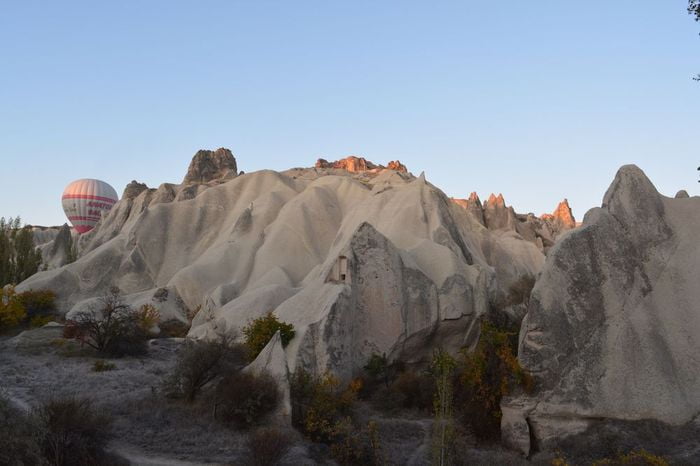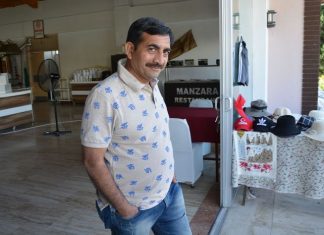The Chiauss consented to this and pledged himself to the Emperor not to return home, after he had received holy baptism. Since he had received instructions from the Sultan by letter that, if the Emperor were willing to arrange a marriage for him, he should drive out all the satraps who held the maritime towns by shewing them the Sultan’s letter treating of this question, the Emperor suggested to the Chiauss to make use of this letter and after he had expelled them all by shewing them the Sultan’s writing, to return to the capital again. The Chiauss with great alacrity went first to Sinope and by shewing Charatices the Sultan’s epistle he drove him out of the town without an obol of the Emperor’s money in his pocket.
The Emperor’s satraps
This is what happened. As Charatices was going out of Sinope, he desecrated the church dedicated to our Immaculate Lady, the Mother of God, and forthwith he was delivered by the hand of God, as it seemed, to an avenging demon, and fell to the ground foaming at the mouth, and so he went out of the town mad 1 The jurisdiction over Sinope the Chiauss handed to Constantine Dalassenus whom the Emperor had sent down there for that purpose, then he successively visited the other towns, shewed the satraps the Sultan’s letter, and thus drove them all out and handed the town over to the Emperor’s satraps. This business finished, the Chiauss returned to the Emperor, and after receiving holy baptism and revelling in rich presents he was appointed Duke of Anchialus.
X When the suicide of Ameer Soliman became known throughout the whole of Asia, each satrap who was governor over a town or fortress, took that respective place and made it his own. For at the same time that the Ameer Soliman entrusted the Government of Nicaea to Apelchasem on his departure for Antioch, he also apportioned the seacoast, and Cappadocia, in fact the whole of Asia, to various satraps, for each man to guard his own portion until such time as he, Soliman, should return.
Now Apelchasem who was then archsatrap in Nicaea, where the Sultan’s palace was, took possession of the town and transferred Cappadocia to his brother, Pulchases, and then lived a carefree life, expecting soon to assume the dignity of ‘Sultan,’ in fact looked upon it as a certainty. The man was capable and intrepid, and would not be satisfied with what he had, so sent forth foraging parties to lay waste the whole of Bithynia as far as the Propontis.
Read More about John of Damascus part 30








